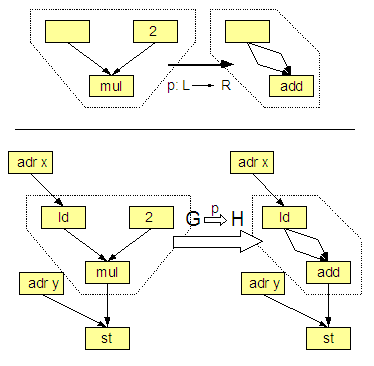John C. Baez's Blog, page 60
March 25, 2018
Applied Category Theory Course (Part 1)
It just became a lot easier to learn about applied category theory, thanks to this free book:
• Brendan Fong and David Spivak, Seven Sketches in Compositionality: An Invitation to Applied Category Theory.
I’ve started an informal online course based on this book on the Azimuth Forum. I’m getting pretty sick of the superficial quality of my interactions on social media. This could be a way to do something more interesting.
The idea is that you can read chapters of this book, discuss them, try...
Applied Category Theory – Online Course
It just became a lot easier to learn about applied category theory, thanks to this free book:
• Brendan Fong and David Spivak, Seven Sketches in Compositionality: An Invitation to Applied Category Theory.
I think I’ll start a kind of informal online course or seminar based on this book on the Azimuth Forum. I’m getting pretty sick of the superficial quality of my interactions on social media. This could be a way to do something more interesting.
The idea is that you can read chapters of this...
March 11, 2018
Hypergraph Categories of Cospans

Two students in the Applied Category Theory 2018 school wrote a blog article about Brendan Fong’s theory of decorated cospans:
• Jonathan Lorand and Fabrizio Genovese, Hypergraph categories of cospans, The n-Category Café, 28 February 2018.
Jonathan Lorand is a math grad student at the University of Zurich working on symplectic and Poisson geometry with Alberto Cattaneo. Fabrizio Genovese is a grad student in computer science at the University of Oxford, working with Bob Coecke and Dan M...
March 9, 2018
An Upper Bound on Reidemeister Moves
[image error]
Graham’s number is famous for being the largest number to have ever shown up in a proof. The true story is more complicated, as I discovered by asking Graham. But here’s a much smaller but still respectable number that showed up in knot theory:

It’s 2 to the 2 to the 2 to the 2… where we go on for 101,000,000 times. It appears in a 2011 paper by Coward and Lackenby. It shows up in their upper bound on how many steps it can take to wiggle around one picture of a link until you get anothe...
March 3, 2018
Coarse-Graining Open Markov Processes
Kenny Courser and I have been working hard on this paper for months:
• John Baez and Kenny Courser, Coarse-graining open Markov processes.
It may be almost done. So, it would be great if people here could take a look and comment on it! It’s a cool mix of probability theory and double categories. I’ve posted a similar but non-isomorphic article on the n-Category Café, where people know a lot about double categories. But maybe some of you here know more about Markov processes!
‘Coarse-graining’...
Nonstandard Integers as Complex Numbers
[image error]
I just read something cool:
• Joel David Hamkins, Nonstandard models of arithmetic arise in the complex numbers, 3 March 2018.
Let me try to explain it in a simplified way. I think all cool math should be known more widely than it is. Getting this to happen requires a lot of explanations at different levels.
Here goes:
The Peano axioms are a nice set of axioms describing the natural numbers. But thanks to Gödel’s incompleteness theorem, these axioms can’t completely nail down the structure...
March 1, 2018
Cartesian Bicategories
Two students in the Applied Category Theory 2018 school have blogged about a classic paper in category theory:
• Daniel Cicala and Jules Hedges, Cartesian bicategories, The n-Category Café, 19 February 2018.
Jules Hedges is a postdoc in the computer science department at Oxford who is applying category theory to game theory and economics. Daniel Cicala is a grad student working with me on a compositional approach to graph rewriting, which is about stuff like this:

This picture shows four ‘...
February 24, 2018
Insect Population Crash
Scary news from Australia:
• Marc Rigby, Insect population decline leaves Australian scientists scratching for solutions, ABC Far North, 23 February 2018.
I’ll quote the start:
A global crash in insect populations has found its way to Australia, with entomologists across the country reporting lower than average numbers of wild insects.
University of Sydney entomologist Dr. Cameron Webb said researchers around the world widely acknowledge that insect populations are in decline, but are at a l...
February 22, 2018
A Double Conference
Here’s a cool way to cut carbon emissions: a double conference. The idea is to have a conference in two faraway locations connected by live video stream, to reduce the amount of long-distance travel!
Even better, it’s about a great subject:
• Higher algebra and mathematical physics, August 13–17, 2018, Perimeter Institute, Waterloo, Canada, and Max Planck Institute for Mathematics, Bonn, Germany.
Here’s the idea:
“Higher algebra” has become important throughout mathematics, physics, and math...
February 18, 2018
Complex Adaptive System Design (Part 7)
In March, I’ll be talking at Spencer Breiner‘s workshop on Applied Category Theory at the National Institute of Standards and Technology. I’ll be giving a joint talk with John Foley about our work using operads to design networks. This work is part of the Complex Adaptive System Composition and Design Environment project being done by Metron Scientific Solutions and managed by John Paschkewitz at DARPA.
I’ve written about this work before:
John C. Baez's Blog
- John C. Baez's profile
- 29 followers



